1. The Catcher in the Rye by J.D. Salinger
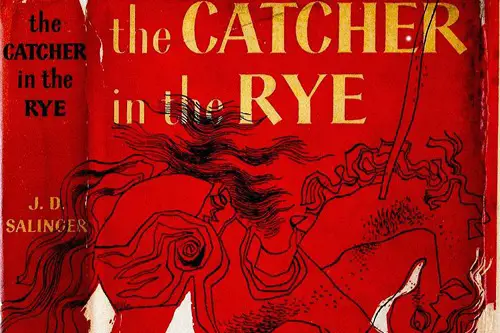
Before Holden Caulfield ever lit a cigarette or said “phony,” some schools and parent groups were already calling the book dangerous and “Un-American.” Critics feared it promoted rebellion, disrespect for authority, and moral decay—very Cold War-era anxieties. Ironically, many of them never made it past the first few pages before deciding it was subversive. Salinger was critiquing hypocrisy, not waving a red flag.
Despite being a quintessential American novel, it was pulled from libraries and challenged in courtrooms. The book’s profanity and sexual references were often quoted out of context. But at its core, it’s about a teen searching for truth in a world full of fakes. Hardly the Communist Manifesto.
2. The Peace Corps
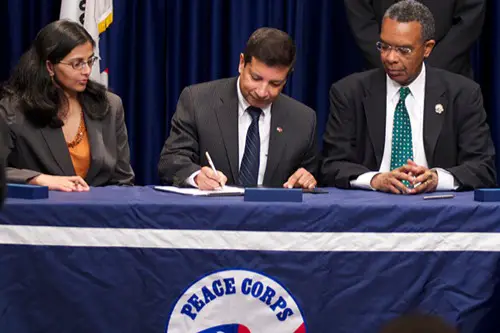
When JFK proposed the Peace Corps in 1960, critics immediately slammed it as a socialist scheme. Some even called it a “communist infiltration plan” disguised as public service. The idea of young Americans traveling abroad to help others didn’t sit well with Cold Warriors. They feared it would spread liberal ideology instead of American capitalism.
Never mind that the mission was rooted in American ideals—volunteerism, democracy, and cross-cultural friendship. The plan didn’t even have legs yet before headlines and op-eds started tearing it apart. Congress members labeled it “naive” and “unpatriotic.” Once it launched, though, it quickly became one of America’s most beloved soft-power tools.
3. Martin Luther King Jr.’s “Beyond Vietnam” Speech

In 1967, Dr. King gave a speech condemning the Vietnam War—and instantly got called “un-American.” It shocked many, including his allies, who believed civil rights should stay separate from foreign policy. But King saw the war as morally indefensible and a betrayal of American promises. That stance made headlines branding him a traitor.
He was called “divisive,” “anti-American,” and even accused of parroting Hanoi’s propaganda. The FBI used it as more fuel in their campaign to discredit him. But all he did was connect the dots between racism, militarism, and economic injustice. Turns out, challenging war wasn’t as patriotic as fighting one.
4. The Simpsons
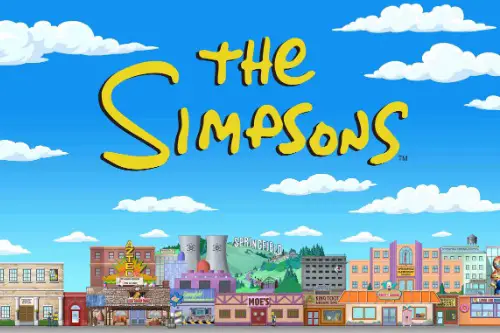
Back in the early ’90s, The Simpsons was public enemy number one in the culture wars. Politicians and parents’ groups called it “anti-family” and “un-American.” Vice President Dan Quayle and President George H. W. Bush both slammed the show publicly. All because Bart didn’t do his homework and said “Eat my shorts.”
The irony? The show was often a satire of exactly the values its critics claimed it undermined. It poked fun at hypocrisy, consumerism, and the hollowness of performative patriotism. But satire doesn’t always play well with people who take themselves very seriously.
5. The Pentagon Papers
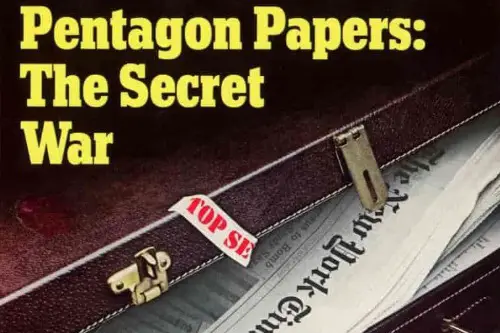
When The New York Times published the Pentagon Papers in 1971, the backlash was swift and intense. Government officials labeled it “un-American,” “dangerous,” and a threat to national security. All because it exposed decades of deception about the Vietnam War. Critics didn’t care what the papers said—just that someone dared say it.
The leak revealed that multiple presidents had misled the public about the war’s progress. But instead of grappling with that, many focused on silencing the messenger. Daniel Ellsberg, who leaked the documents, was painted as a traitor. In hindsight, the real scandal was what those papers proved—not who published them.
6. Jazz Music

In the early 20th century, jazz was seen by many white Americans as wild, corrupting, and yes—“un-American.” It came out of Black communities in New Orleans and brought with it improvisation, rhythm, and a defiant new energy. Critics accused it of encouraging immoral behavior and threatening traditional values. Churches and schools banned it outright.
But jazz was America’s first true art form, born from a uniquely American mix of cultures. Still, because it didn’t fit the “civilized” mold, it got demonized before anyone really listened. Even Congress debated its corruptive influence on youth. Now it’s played at the Kennedy Center.
7. The GI Bill
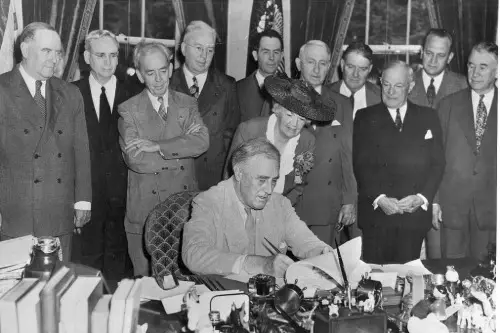
When the GI Bill was introduced in 1944, some lawmakers tried to block it by calling it socialist and “un-American.” They feared giving returning soldiers free education and housing benefits would undermine individual initiative. The idea of federally backed support for veterans struck them as too close to a welfare state. They wanted parades, not policy.
But the bill went on to educate millions and fuel the post-war middle class. It was one of the most successful government programs in U.S. history. Still, early resistance showed how reflexively anything cooperative or generous could be cast as subversive. Especially if it came with a price tag.
8. Sesame Street
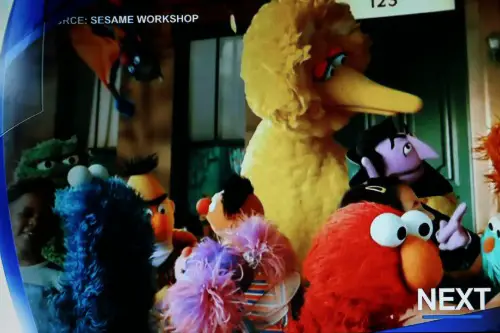
You wouldn’t think puppets could stir up that much trouble—but they did. When Sesame Street debuted in 1969, it faced criticism from conservatives who said it pushed “liberal” and “un-American” values. Teaching kids about diversity, empathy, and cooperation was apparently a step too far. Some Southern states refused to air it.
The show was ahead of its time in showing an integrated neighborhood. It taught kids that kindness matters more than conformity. But that message, simple as it was, rattled people who equated American values with authority and obedience. Big Bird wasn’t red, but people saw what they wanted to see.
9. Harry Potter
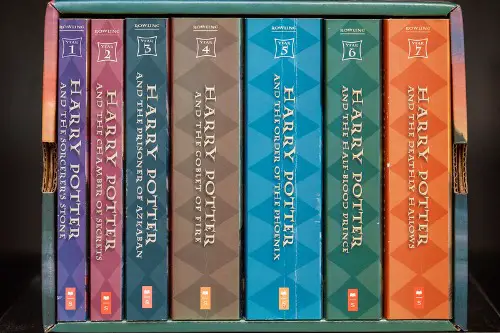
When Harry Potter hit American bookshelves in the late ’90s, it quickly drew fire from religious groups. Critics said it promoted witchcraft, anti-Christian messages, and “un-American” moral relativism. Some school boards even banned it before finishing the first book. Apparently, a British boy wizard was just too threatening.
The irony is that the books championed loyalty, bravery, and standing up to tyranny. But because spells and potions were involved, the nuance got lost. Parents feared it was a gateway to occultism. Kids just wanted to ride broomsticks and battle dark lords.
10. Medicare

When Medicare was proposed in the 1960s, many conservatives attacked it as a “socialist” plot that would destroy American freedom. Ronald Reagan, then a rising political voice, warned it would lead to government control over every aspect of life. He called it the beginning of the end for liberty. Never mind that it was designed to help elderly Americans access healthcare.
The term “un-American” was tossed around liberally in the debates. Providing care for seniors was somehow equated with tyranny. Today, it’s one of the most popular federal programs. But back then, even helping Grandma was suspect.
11. Climate Science
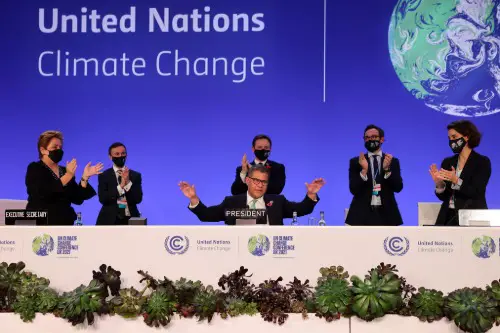
Long before “climate change” became a mainstream term, early environmental warnings were branded as anti-industry and “un-American.” Scientists sounding the alarm in the ’70s and ’80s were dismissed as alarmists or worse—tools of foreign agendas. They were accused of trying to sabotage American economic growth. The logic was: real patriots don’t question oil.
Corporations and politicians created think tanks just to discredit environmental research. It wasn’t about the data—it was about the perceived threat to capitalism. The result was decades of delayed action. All because asking questions about fossil fuels got treated like treason.
12. The Internet

Yes, even the internet was once labeled suspiciously “un-American.” In the early ’90s, as it grew beyond government and academic use, critics warned it would erode traditional values and national identity. People feared it would spread misinformation and corrupt the youth—which, okay, fair. But their solution was to stop it before it started.
Some called for tight controls and censorship, arguing it was too chaotic for American society. There were Congressional hearings on indecency and foreign influence before most homes even had dial-up. But the very openness they feared became its greatest strength. Turns out, free expression is as American as it gets—even when it’s messy.
This post 12 Things That Got Declared “Un-American” Before Anyone Even Read Them was first published on American Charm.


